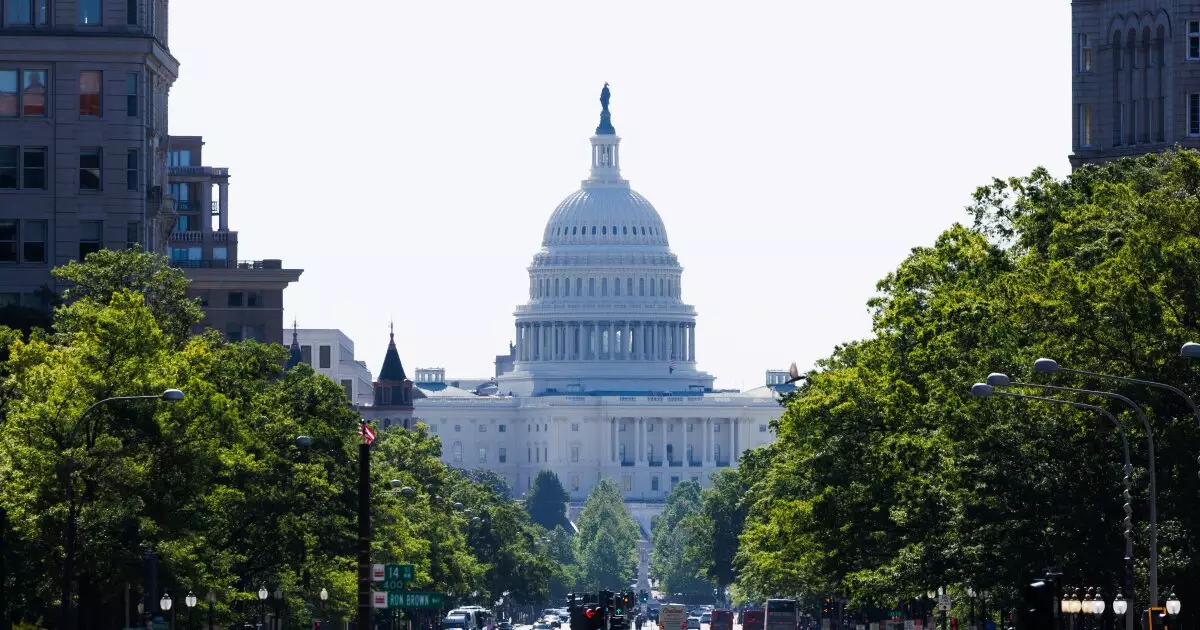The recent developments in the House Ways and Means Committee regarding the proposed tax bill brings us to a crossroads in fiscal policy, where significant implications for middle-class families lurk behind lofty promises. The draft unveiled is an undeniable telling sign of the direction we might be heading: a $5 trillion venture into irrevocable debt that prioritizes short-term political gains at the expense of long-term stability. The ethos of this freshly penned bill is rooted in rhetoric that caters to the interests of big corporations and affluent households while neglecting the needs of the overwhelming silent majority—the middle class.
One can hardly ignore Committee Chair Rep. Jason Smith’s comments on how “pro-family, pro-worker tax provisions are the heart of President Trump’s economic agenda.” Yet, one has to ask: who exactly benefits from these provisions? An expert analysis reveals that the impact on actual living standards for the average American worker is often lumped in with corporate tax breaks and superfluous incentives—neither of which impact their day-to-day economic stressors.
The Folly of Permanent Tax Cuts
The draft seeks to make certain elements of the 2017 Tax Cuts and Jobs Act permanent, yet this action is drenched in irony. By doing so, it promises to cement a fiscal structure that could wreak havoc on our budget through significant increases in primary deficits. With the estimates indicating an overshoot of “$5 trillion to the primary deficits through 2034,” it’s clear that merely keeping tax cuts in place for the rich will not encourage economic stability.
What’s even more unsettling is the lack of proposed offsets to mitigate this expense. A responsible government would look for ways to balance its budget, not merely kick the can down the road. When the people’s taxes fund a fiscal nightmare, we end up embedding the next generation within a stranglehold of debt, which prioritizes short-term appeasement over constructive economic policies.
The SALT Deduction Debate
A central sticking point within these negotiations is the state and local tax deduction (SALT) cap. The absence of a substantial increase in this cap, which represents an essential financial buffer for residents in high-tax states, signifies negligence toward millions of taxpayers. Legislators from these high-tax regions, part of the so-called SALT Caucus, are expected to demand meaningful reforms if they’re to provide their support.
This presents a critical conflict: on one side, you have the dedication to maintain budgetary discipline, and on the other, a plea for fiscal relief from hard-pressed families in high-tax states. Leaders must choose carefully; mishandling this crucial component could lead to a fissure in party unity.
The Risk to Municipal Bonds
Municipal bond markets are closely observing the tax proposal’s implications. Tax exemptions for municipal bonds are often leveraged by local governments to finance essential services like education and infrastructure. Should funds be diverted from these exemptions to cover the costs of the proposed bill, we could witness a backlash that ultimately harms community welfare—a gamble that is both irresponsible and shortsighted.
Moreover, the fact that telegraphed warnings have come from the Treasury regarding an impending debt ceiling crisis frames this proposal in a wobbly light. The urgency of needing to raise it by mid-July before the summer recess does little to serve as a solid foundation for legislation that could add an estimated $4 trillion to the nation’s debt load.
The tension brewing within Congress is palpable as various factions wrestle over the implications of these proposed tax changes. Those of us aligned with center-right liberalism advocate for a balanced approach that prioritizes fiscal responsibility while still addressing the needs of the middle class. Incremental reforms that stabilize our economic landscape without strangling taxpayers with unsustainable debt are paramount. The current trajectory, marked by overly ambitious legislation of gargantuan fiscal appetites, inevitably sidesteps the struggles of everyday Americans. It’s high time that our representatives focus on building an economic environment that nurtures families rather than shackling them with debt.


Leave a Reply